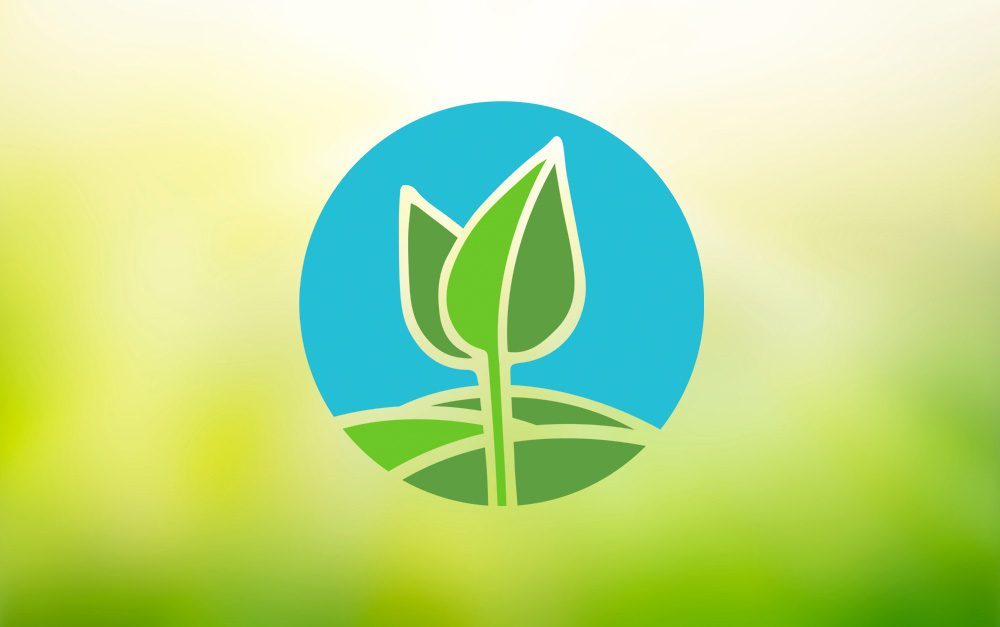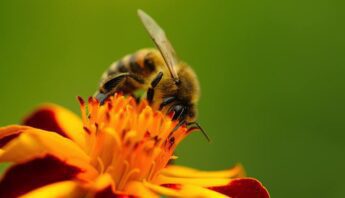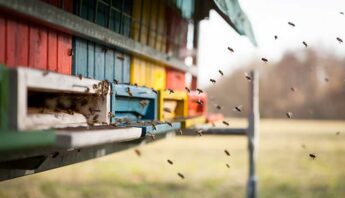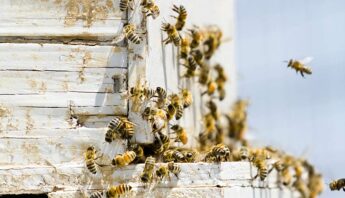Committee calls on Minnesota policymakers to set a national precedent
For immediate release: Monday, November 19, 2018
St. Paul, Minnesota — On Friday, the Minnesota Governor’s Committee on Pollinator Protection released a landmark set of recommendations to reverse pollinator declines in Minnesota. The release coincides with the November 21st Environmental Quality Board meeting, where the report will be officially presented.
The report is the powerful culmination of two years of hard work and tough conversations by the members of the Governor’s Committee — a group of 15 representatives chosen by Governor Dayton in 2016. The committee includes Minnesota farmers, industry representatives, beekeepers, educators, researchers, and pollinator advocates.
While the committee doesn’t agree on everything, all committee members recognize that the current pollinator crisis threatens Minnesota’s agricultural economy, and that the state needs to do more to protect these critical species.
The 39 recommendations in the report include steps to increase habitat, protect pollinators from harmful pesticide exposure, and better educate Minnesotans on pollinator conservation strategies.
One innovative recommendation is to establish a state-funded program to provide farmers with a financial incentive to plant corn and soy seed not treated with neonicotinoids (supported by 12 committee members). On Saturday at the annual Minnesota Farmers Union convention, members voted unanimously to adopt a resolution to support creating such a program.
The report also outlines a new program focused on converting turf grass to flowering habitat (supported by 14 committee members). Habitat options include bee lawns, native flowering habitat, native shrub plantings, rain gardens, and other pollinator-friendly alternatives.
Other highly supported and top-priority recommendations are to:
- Expand funding and eligibility criteria for pollinator habitat and management practices on rural lands, beyond what is provided by existing pollinator habitat programs (supported unanimously)
- Include the importance of pollinators and their habitat in resources developed for teachers within the next version of MN science standards (supported by 14 members)
- Restrict the use and sale of neonicotinoid insecticides to licensed applicators (supported by 11 members)
- Adopt in statute a goal to reduce overall use of pesticides harmful to pollinators and designate an agency to create and implement a plan to meet the target (supported by 10 members)
The release of the report coincides with the election of incoming governor Tim Walz. The committee calls on the governor elect and other decision-makers to take timely and thoughtful action based on the recommendations proposed in this report.
Lex Horan, Pesticide Action Network stated:
“The committee’s report sets out a strong, practical game plan for protecting pollinators. The vast majority of proposals it contains were backed by a diverse cross-section of Minnesotans. Committee members encourage Governor Walz to make pollinators a top priority. The ongoing and unsolved pollinator crisis is one of the biggest agricultural, economic and environmental issues the incoming governor will need to face.”
Sarah Foltz Jordan, Xerces Society for Invertebrate Conservation stated:
“We focused on ideas that are meaningful, achievable, and address some of the most important pollinator conservation gaps in our state. We tried to think from a pollinator’s perspective — what do insect populations need most right now, and how can we come together to meet these needs? It was pretty clear to most of us from the beginning that we need to increase valuable habitat on the ground and make meaningful advances in protecting pollinators from pesticides.”
Commercial beekeeper Steve Ellis stated:
“As chemical exposures continue to increase, beekeepers are fighting a losing battle to keep their honey bees alive and healthy. The beekeeping industry in Minnesota is a canary in the coal mine, warning us that we must change our behavior or risk losing bees, native pollinators, monarch butterflies, songbirds, game birds, keystone aquatic species and even our own human health.”
Erin Rupp, Pollinate Minnesota stated:
“We, as Minnesotans, care about pollinator decline. Around the state, in our yards and our communities, we’re taking steps to help them. These precedent-setting recommendations build on our groundwork for Minnesota’s continued national leadership in pollinator protection, and, if policy-makers follow them, will help our struggling pollinators in the way Minnesotans are looking for.”
Contacts:
Willa Childress, Pesticide Action Network, 503-739-5195
Sarah Foltz Jordan, Xerces Society for Invertebrate Conservation, 612-845-4531
###
About Pesticide Action Network
At Pesticide Action Network (PAN) North America, we work to create a just, thriving food system. PAN works alongside those on the frontlines of pesticide exposure — from farmworkers to rural communities to beekeepers. PAN links local and international consumer, labor, health, environment and agriculture groups into an international citizens’ action network. Together, we challenge the global proliferation of pesticides, defend basic rights to health and environmental quality, and work to ensure the transition to a just and viable food system.
About the Xerces Society for Invertebrate Conservation
The Xerces Society is a nonprofit organization that protects wildlife through the conservation of invertebrates and their habitat. Established in 1971, the Society is a trusted source for science-based information and advice. We collaborate with people and institutions at all levels and our work to protect pollinators encompasses all landscapes. Our team draws together experts from the fields of habitat restoration, entomology, botany and conservation biology with a single passion: protecting the life that sustains us. To learn more about our work, please visit www.xerces.org or follow us @xercessociety on Twitter, Facebook or Instagram.







